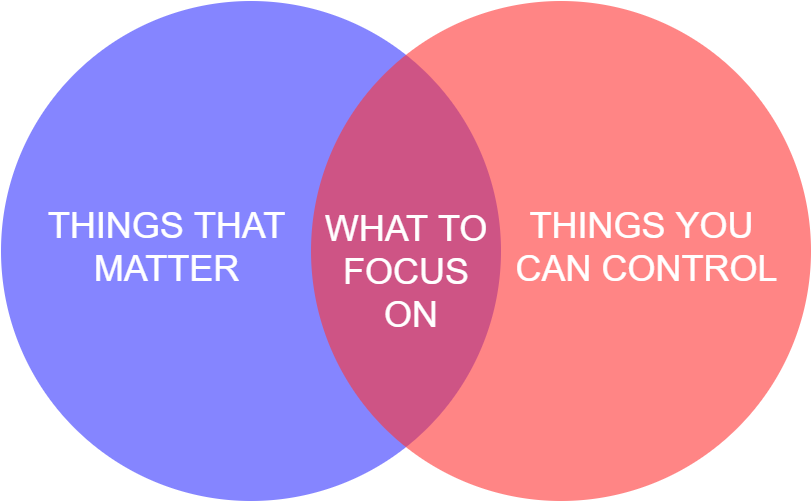- Fri 15 May 2020
- philosophy
- #stoicism, #introduction
"Very little is needed to make a happy life; it is all within yourself, in your way of thinking." -Marcus Aurelius
What is Stoicism?¶
Stoicism is an ancient philosophy founded in the early 3rd century BC that focused on practical ways to live a better life. It is one of the main practical philosophies out there and is more of a way of life than a philosophy.
The main Stoics whose writings still survive today are Lucius Seneca (One of the richest merchants in Rome), Epictetus (A Roman slave), and Marcus Aurelius (A Roman Emperor). That is a pretty wide range of people, and it shows that this philosophy can benefit nearly everyone, and it has for thousands of years. George Washington started studying Stoicism when he was 17 and Thomas Jefferson had a copy of Seneca on his nightstand when he died!
Stoicism really shines at developing a state of mind that is immune against what is going on around us. It is so effective at improving how we see the world that it serves as the foundation of Cognitive Behavioral Therapy (CBT).
What Are Some Core Stoic Practices?¶
1. The Dichotomy of Control¶

The concept of control is one of the key elements of Stoicism. This model explains that some things are within our control and some things are not.
Within our control are:
- Our thoughts
- Our beliefs
- Our values
- Our actions
Outside our control is pretty much everything else:
- Other people
- The weather
- The economy
- A pandemic that forces all of us to stay home and take Zoom classes
- Politics
- What other people think of us
- Our past
- etc.
Things outside of our control will not change, regardless of how much we scream in traffic. We can, however, choose how we will react to an event. When we commit to stop wasting our emotional energy and time on things that are outside of our control, we are suddenly freed up to focus on what is truly important in our lives.
2. Amor Fati¶
"My formula for greatness in a human being is amor fati: that one wants nothing to be other than it is, not in the future, not in the past, not in all eternity." -Friedrich Nietzsche
Amor Fati roughly translates to a "love of fate" or "love of one's fate." It is the idea that we need to accept and embrace all the good and bad that has happened in our lives and the world. We shouldn't wish for our lives to have been any different because that is out of our control. All of the conditions of the past were needed for you to be right where you are now.
So, you can wish to change many events about your past, or you can use your ability to re-tell your past and assign meaning and purpose to all that has happened to get you to where you are today. Turn the past and present into something positive. We don't have many years of life to experience, so we might as well love what we choose. And that leads us into our last concept...
3. Memento Mori¶
"You could leave life right now. Let that determine what you do and say and think." -Marcus Aurelius
Memento Mori translates to 'remember that you must die.' Ah yes, Death. It's something that's usually ignored and not talked about in our modern-day and is often pretty uncomfortable to think about. Despite this, there is a benefit to be had from realizing that our time is limited, and eventually, this roller coaster of existence will have an end. Reminding yourself of this can hugely improve how we live our day-to-day.
If you would humor me, Imagine that you are just told that you have a week to live. I would bet that you would have a laundry list of things that you would want to do, people you want to spend time with, and places to visit. All of a sudden, you can clarify what's important. It's too easy to forget this trip has an end, and if you can remember that it does you can fill much more of your time with what matters to you.
How Can Stoicism Make Your Life Better?¶
Among many of Stoicism's benefits are:
- making you immune to events outside your control
- clarifying what is important in your life
- making you happier on the day-to-day.
At the end of the day, Stoicism serves to improve your well-being and reduce needless day to day suffering. It has helped me personally to realize that there is so much that I used to worry and care about outside of my control that had no impact on my life at all. So much of life is out of our hands, but that allows us the opportunity to leverage that tiny sliver of life we do control, our thoughts and actions, to live a better life.
There are many more concepts, practices, and pieces of advice that Stoicism has to offer, but I aimed to give a good general introduction to this philosophy. Hopefully, you found something useful in this post.
